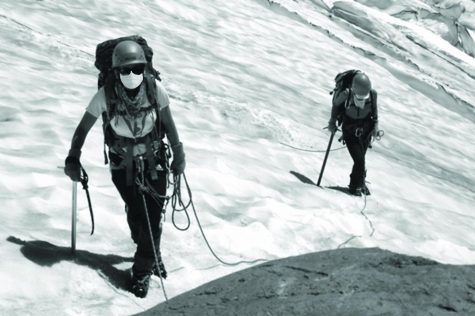Outdoor Trips in the Time of COVID

Outdoor trips are an integral part of the Lakeside experience. Backpacking, rafting and kayaking are seen as opportunities for students to step out of their comfort zones and to build relationships with students and teachers they might not normally interact with on campus. The great outdoors is the classroom, and the outdoor curriculum aims to allow students to appreciate the Pacific Northwest on these trips. Every Lakeside student is required to participate in at least one trip prior to graduation, which doesn’t seem like an extreme requirement, especially since there are so many to choose from.
Sadly, when COVID-19 forced us all into our homes back in March, all the spring trips were canceled (my Deschutes Rafting included); I imagine was as big of a letdown to many of you as it was for me. As the situation worsened over the summer, there seemed to be no plausible way for a trip to be conducted safely. Now, still in remote learning and into 2021, there is a glimmer of hope for outdoor activities. In recent class meetings, we learned about plans to run outdoor trips in the spring. For those of you who may be signed up for a trip or are considering one, here’s a short rundown of the safety plans.
First, anyone participating in a trip is required to receive a negative test result prior to the trip. Although the negative test may seem sufficient for the entire trip, Lakeside is implementing safety measures for the full duration of the trip to maintain as safe of an environment as possible. Attendees will be required to follow the same guidelines as we have now. Masks will generally not be required outdoors except when students are within six feet of each other and when in rafts, for those going on rafting trips. Since students will be outside, social distancing shouldn’t be an issue. In addition to mask-wearing and social distancing during trips, there are new protocols for indoor spaces, transportation, and sleeping arrangements. Since tents are closed spaces, sleeping under the stars will be encouraged, if the weather allows. In the case of poor weather, campers should be prepared to use “mids,” which are more open than a tent, while sleeping head to toe to keep faces apart.
Overall, changes would have been necessary for a safe and successful trip. With these shifts, Lakeside hopes to continue its programs.
